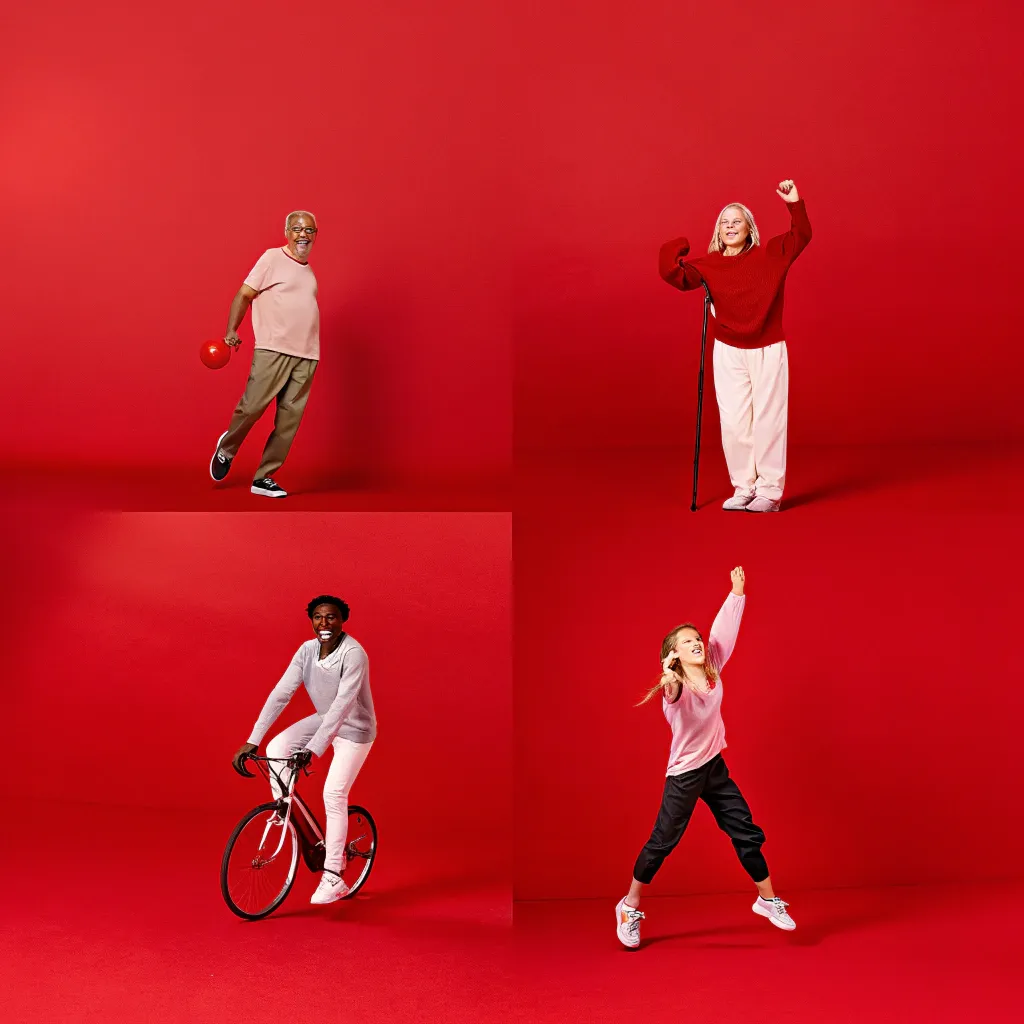Unlocking Joy and Vitality: The Best Hobbies to Keep You Active and Happy
Life truly blossoms when you discover what moves you, both physically and emotionally.
It's more than just filling time. Hobbies are a vital ingredient for a life well-lived, a pursuit of genuine passion. They offer a unique blend of physical movement, mental stimulation, and often, a connection with others. Forget the idea that staying active means endless gym sessions; it really doesn't. Sometimes, it’s about finding an activity you genuinely enjoy and sticking with it. The secret? Pick something that brings you a spark of joy, even when you're just thinking about it.
This article is for informational purposes only and is not a substitute for professional medical advice, diagnosis, or treatment. Always seek the advice of your physician or other qualified health provider with any questions you may have regarding a medical condition.
Moving Your Body, Lifting Your Spirit
The pursuit of physical activity doesn't have to feel like a chore. In fact, many people find more sustained joy and better long-term health benefits from activities they genuinely love. For some, it's the thrill of the outdoors, for others, the rhythm of movement. Think beyond the treadmill for a moment; what actually calls to you?
Consider the sheer variety of active hobbies available. According to sometimes-homemade.com, there are scores of options, from spirited outdoor adventures to engaging fitness challenges that sneakily get you moving. For instance, dancing – not just ballroom, though that’s fantastic, but any form, be it salsa, swing, or even just freestyle in your living room – offers incredible cardiovascular benefits, improves balance, and is a fantastic mood booster. It's a full-body workout that hardly feels like one.
Beyond the Gym: Unconventional Active Pursuits
- Gardening: Digging, planting, weeding, and even just walking around your garden plot provides surprising physical exertion. Plus, the satisfaction of growing something is immense. It's a simple, grounding activity that connects you to nature and can easily become a healthy hobby for seniors.
- Pickleball: This sport, a mix of tennis, badminton, and ping-pong, has absolutely exploded in popularity. It's accessible to many skill levels, offers a great workout, and is inherently social. You'll find courts popping up everywhere, often attracting a vibrant community. It’s a stellar example of how senior activity ideas can be truly fun hobbies for retirement.
- Hiking or Brisk Walking: Getting outside, exploring local trails or even just new neighborhoods on foot, provides ample physical activity while refreshing the mind. Discovering a new park path or a scenic overlook can be wonderfully invigorating. Even just a 30-minute brisk walk daily contributes significantly to keeping seniors active.
- Paddle Sports (Kayaking/SUP): Gliding across the water on a kayak or stand-up paddleboard is not only incredibly peaceful but also a superb core and upper-body workout. It engages muscles you might not typically use and offers a unique perspective of your local waterways.
Many of these activities, as hobbyknowhow.com points out, allow you to improve your fitness without resorting to traditional, often mundane, gym routines. It's about finding that delightful sweet spot where fun meets fitness.
Engaging Your Mind, Enriching Your Life
Physical activity is crucial, but true well-being encompasses mental sharpness too. Hobbies that challenge your brain can prevent cognitive decline, foster creativity, and provide a deep sense of accomplishment. These aren't just for downtime; they are productive hobbies that genuinely enrich your life.
Creativity and Cognition: Hobbies That Spark Joy
- Learning a Musical Instrument: Whether it's the guitar you always wanted to play or a return to the piano, music engages multiple parts of the brain simultaneously. It's a complex, rewarding pursuit that improves memory, coordination, and even emotional regulation.
- Photography: This hobby blends artistic expression with an active element, as you often need to get out and about to find compelling subjects. It encourages you to see the world differently, paying attention to light, composition, and detail. You'll find yourself exploring new places, which is great for keeping seniors active.
- Writing (Blogging, Journaling, Fiction): Putting thoughts to paper, or screen, can be incredibly therapeutic and intellectually stimulating. It hones communication skills, clarifies thinking, and offers an outlet for self-expression.
- Puzzles and Brain Games: Jigsaw puzzles, Sudoku, crosswords, or strategic board games are excellent for cognitive function. They improve problem-solving skills, concentration, and patience. Not exactly "active" in the physical sense, but crucial for hobbies for well-being.
- Learning a New Language: This is a formidable mental workout. It enhances memory, improves multitasking abilities, and opens doors to new cultures and experiences. Plus, traveling becomes infinitely more enriching when you can communicate, even a little, in the local tongue.
lifehack.orgsuggests many productive hobbies that can make you smarter and happier, and language learning certainly tops that list.
It's about finding ways to channel your downtime into something genuinely useful, as happierhuman.com notes when discussing productive, often screen-free, ways to upskill your life.
Finding Community Through Shared Pursuits
One of the less-talked-about, but arguably most profound, benefits of hobbies is their power to foster connection. Shared interests create natural bonds, combat loneliness, and build supportive networks. These social hobbies are incredibly important for overall well-being, particularly for older adults.
Joining a club or group centered around a hobby amplifies its positive effects. Think about local birdwatching groups, community garden initiatives, or even casual sports leagues. You’re not just engaging in an activity; you’re building a sense of belonging. This is vital for mental health, combating the isolation that can sometimes creep in.
- Book Clubs: A classic for a reason. They encourage reading, lively discussion, and offer regular social interaction.
- Volunteer Work: While not a hobby in the traditional sense, dedicating time to a cause you care about can feel incredibly rewarding. It provides structure, purpose, and connects you with like-minded individuals. Whether it’s at a local animal shelter or a historical society, it’s meaningful engagement.
- Group Fitness Classes (Yoga, Tai Chi): These offer the dual benefit of physical activity and social interaction. The shared experience, encouragement from peers, and guidance from an instructor can make staying active much more enjoyable.
- Board Game Nights: Organized meetups for board games or even card games can be fantastic for building rapport, engaging in friendly competition, and having a good laugh. It's a simple, low-pressure way to be social.
These avenues provide wonderful opportunities for social hobbies, which are essential senior activity ideas for those looking for fun hobbies for retirement. thehappyhallmarker.com emphasizes the importance of hobbies that make you happy and "fill your bucket," and social connection certainly does that.
What if I'm Not Naturally 'Active'?
This is a common question, and honestly, a valid one. Not everyone is inclined to jump into a rigorous sport or spend hours on a bike. Perhaps you've always preferred quieter pursuits, or maybe physical limitations have become a factor. That's perfectly fine. The beauty of "active" is that it’s relative.
Featured Snippet Opportunity: Defining "Active Hobbies" An "active hobby" isn't solely about high-intensity exercise. It encompasses any leisure activity that gets you moving, uses your body, or provides mental stimulation leading to physical output, however gentle. It's about purposeful engagement that prevents stagnation, supporting both physical and cognitive health.
The key is to start small and find what resonates. For many, simple hobbies for seniors are the most sustainable. Even gentle activities like chair yoga, light gardening, or a slow walk around the block can be incredibly beneficial. The goal isn't to become an athlete, but to keep your body and mind engaged, consistently. If you have any medical conditions, it’s always wise to consult your doctor before starting any new physical activity. They can offer tailored advice for healthy hobbies for seniors.
Consider adapting existing interests. Love art? Try a walking tour that focuses on public sculptures. Enjoy cooking? Explore making meals from scratch that require more movement in the kitchen. The spectrum is broad, truly.
Simple Steps to Start Your New Hobby Journey
Embarking on a new hobby doesn't have to be a grand declaration. It can be a series of small, intentional steps. I've personally found that the biggest hurdle is just getting started, that initial push.
- Reflect on Past Joys: What did you love doing as a child? Or what did you briefly try and secretly wish you continued? Sometimes the answer is right there, buried under layers of adult responsibilities.
- Explore Local Resources: Check your community center, library, or local recreation department. They often have beginner classes, workshops, or clubs for a vast array of interests. This is often the easiest entry point for senior activity ideas.
- Don't Overcommit: Start with a small investment of time or money. Rent a kayak before buying one. Attend a single trial class before signing up for a full series. It’s okay if it doesn’t stick; you've learned something new about yourself.
- Embrace Imperfection: Your first painting won't be a masterpiece, and you might stumble learning a new dance step. That’s part of the fun. The goal is engagement, not instant mastery. This is a big one for me, actually; I tend to want to be good at things immediately, which isn't realistic for anything worthwhile.
- Seek Out Others: If the hobby has a social component, connect with groups or fellow enthusiasts. Their experience and camaraderie can be incredibly motivating. This transforms an individual pursuit into a shared journey.
Ultimately, the best hobbies to keep you active and happy are the ones you genuinely look forward to. They provide purpose, stimulate your senses, and keep you moving, both physically and mentally. It’s about discovering what truly fills your cup and committing to that pursuit. Find that spark, and your active, happy life will surely follow.





